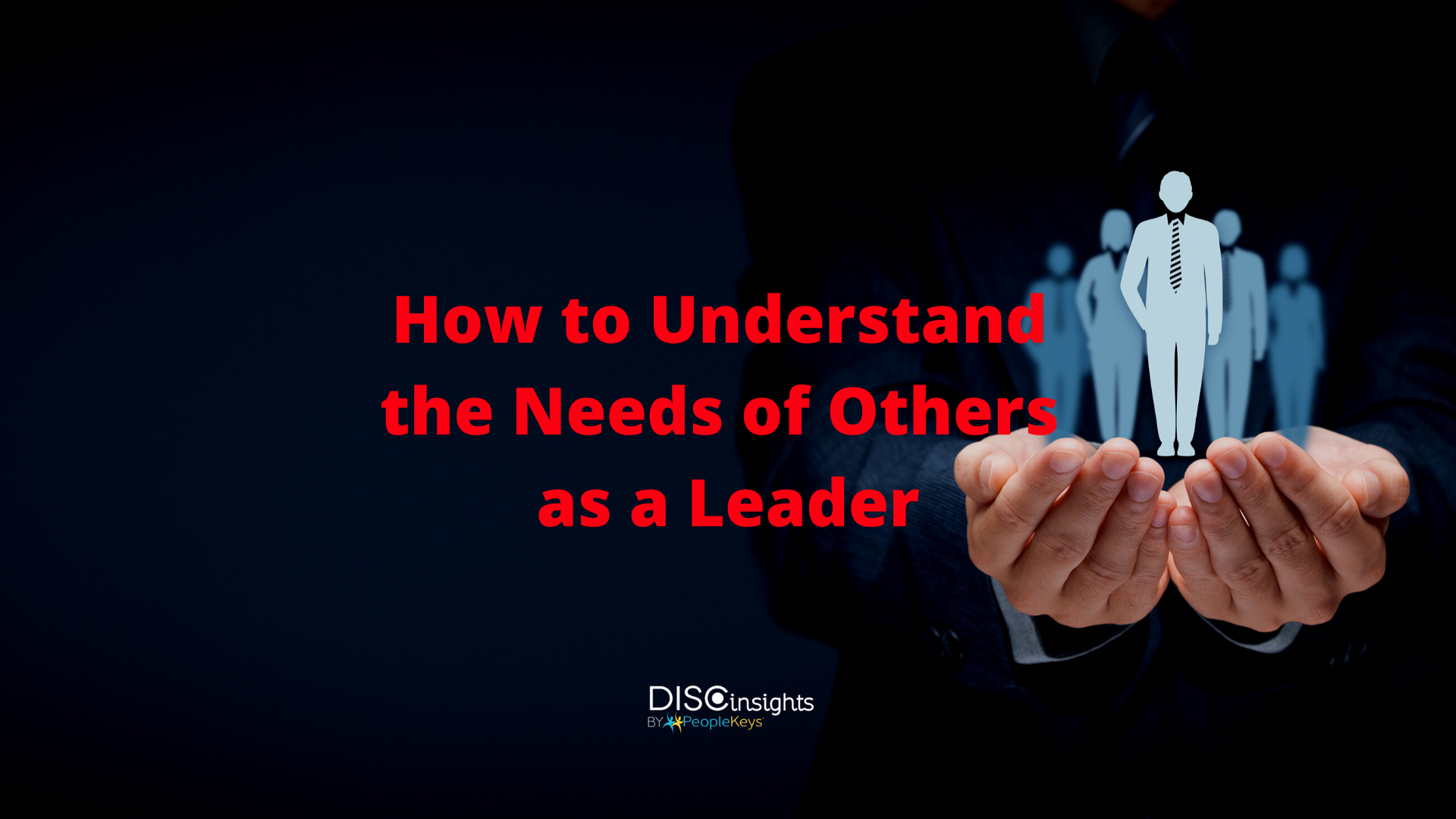- SHOP BY PRODUCT
- DISC TRAINING & CERTIFICATION TOOLS
- DISC RESOURCES
- BLOG
- SHOP BY PRODUCT
- DISC TRAINING & CERTIFICATION TOOLS
- DISC RESOURCES
- BLOG
- ALL ITEMS



It's amazing how people are naturally designed to help others. We were created with five senses, all of which help us experience, learn, and understand more about the world around us. We're raised from birth to respond to a stimulus, some internal (hunger, sleep, etc.) and some external (physical danger, environmental, etc.), and those responses generally result in actions taken to help ourselves. Sometimes these reactions are instinctive; other times, they are learned behaviors that happen automatically and subconsciously.
Where at times we can fall short is the moment when we become aware of or witness someone else experiencing hardships. We may feel compelled to act with intention of helping them out of a less than desirable situation, or perhaps we think we can help them achieve better performance or results based on our observation. It’s important to note, before taking any action to help others, we should self-assess to determine whether we are prepared or equipped to help them effectively. This requires us to have a solid understanding of our own inner awareness. Utilizing tools such as DISC or PeopleKeys 4D assessment can help you gain that deeper understanding and self-awareness.
To be able to think about other people's needs, you also need to know how to provide stress relief for yourself. From yoga to exercise, meditation, deep breathing, or simply taking a walk – whatever helps you to become grounded as a leader. For many of us, a crisis is overwhelming, and you have to draw from a strength greater than yourself to help get you through.
Many of us have heard the safety rule of what to do if you see somebody drowning. You want to make sure you're on solid land and throw in a lifeline to the person, rather than jumping in after them because both of you could drown. This is why your being grounded and having self-awareness needs to come first.
Self-help does not mean you should isolate yourself or feel like you’re left to figure yourself out on your own. You can set aside some time for self-reflection, but personal growth is most effective when you have a support network. This network may consist of trusted family members and friends, but it can also include spiritual and emotional supporters like pastors, professional counselors, or even life coaches.
Once we've taken the appropriate steps to develop our ability to help ourselves, we are better prepared to help others, which means we need to become more in-tune with the needs of others. It is possible, but it requires intentional and effective communication.
Supporting others may have seemed easier when you could physically walk into an office and have a face-to-face conversation, but today that engagement looks a little different. Many organizations are communicating through virtual platforms or phone conversations, and may or may not be able to visibly observe the facial expressions or body language of their members. This can be troublesome for leaders who are more likely to key in on those visible indicators that someone needs assistance. Leaders need to become aware of the importance of not just looking, but also listening for signs that team members may be struggling. If they are preoccupied with distractions and stressors in their own lives, it will be exceedingly difficult for them to serve others.
You have to be grounded - then look for the needs of others. I'm not just talking about what they need to get their work done. For instance, we had one of our daily video check-ins, and I knew things just weren't right with one of my team members. Two people who were close to her were personally impacted over the weekend. It's essential to be able to pick up on those things, seeing who needs encouragement and who needs to know someone is there to support them.
It's like we always say, "People are predictable, but they're predictably different." To understand your team as a leader, you first have to understand yourself, and then understand others. That's why the first step is self-awareness, and the second step is seeing and knowing the needs of others around you. What are you doing today that will help prepare you for the moments when your family, organization, or community needs you the most?

© PeopleKeys. All Rights Reserved
WORKING DAYS/HOURS
Mon - Fri / 8:30AM - 5:00PM EST
